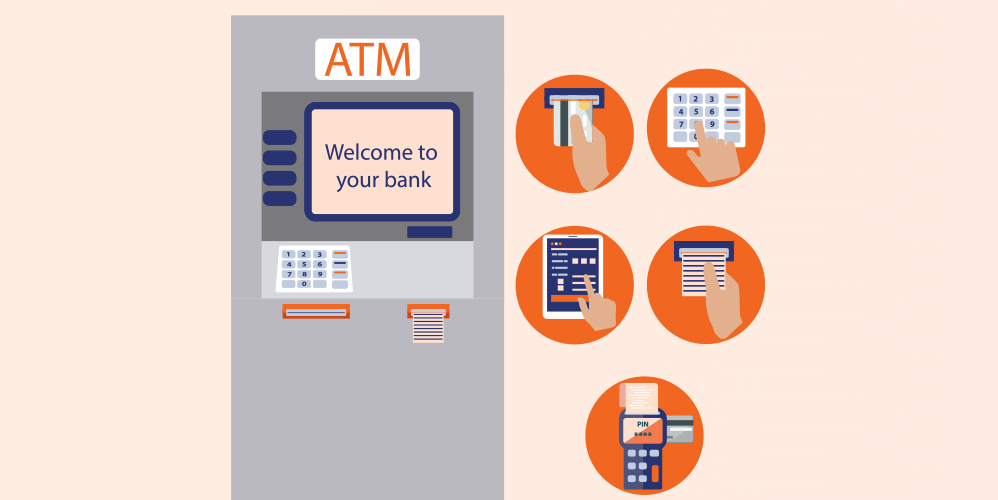
Understanding Salary Accounts: Features, Benefits, and Opening Procedures
16 Feb 2024

Table of Content
If you are wondering “what is a salary account?”, let us answer that for you. As the name itself suggests, a salary account refers to an account in which an employee’s salary gets credited. Salary accounts are a convenient way for companies to pay the salaries of their employees. These accounts come with a plethora of features and offer perks to the employees as well as the employers.
A salary account is a specialized bank account created by employers to disburse employees' salaries. It is a type of savings account that facilitates the seamless transfer of a fixed amount, the monthly salary, from the employer to the employee. Typically, employers have tie-ups with specific banks to simplify this process, making it convenient for both parties.
Who can open a Salary Account?
A business or employer may have a tie-up with the bank in order to be able to provide their employees with a salary account. Each month, the salary amounts for employees are collectively transferred into their respective accounts. If an individual does not have an existing account with the bank chosen by the employer, the employer may facilitate the process of opening an account there. In essence, salary accounts are not independently opened by individual employees, but result from a partnership between a business and a specific bank.
Importance of Salary Account
A salary account holds significance for both employees and employers, offering several benefits. Here are some key benefits of having a salary account:
Direct Salary Credits:
Employers use salary accounts to directly credit employees' salaries. This streamlined process ensures timely and efficient salary disbursals.
Cost-Effective Transactions :
Many banks offer special benefits to salary account holders, such as lower transaction fees, zero or discounted account maintenance charges, and preferential interest rates on loans.
Exclusive Offers and Discounts :
Salary account holders may have access to exclusive offers , discounts, and perks on various financial products, including credit cards, loans, and insurance.
Automatic Bill Payments :
Employees can set up automatic bill payments directly from their salary accounts, ensuring that essential bills are paid on time.
Savings and Investment Options :
Some salary accounts come with integrated savings or investment features, allowing employees to save or invest a portion of their salary easily.
Tax Benefits :
Certain salary accounts offer tax benefits, and the account statements can be useful for income tax purposes.
Features of Salary Account
Zero Balance :
A salary account is a zero balance account . This means that the account holder doesn’t have to worry about maintaining the minimum balance in the account or a penalty. This gives the individual more flexibility on how they manage and utilize their money.
Access to Banking Services :
Salary accounts often provide access to a range of banking services, including online banking, mobile banking, and ATMs, making it convenient for employees to manage their finances.
Debit Card & Cheque Book :
The employees also get a debit card and personalized cheque books that can be used for cash withdrawals. Debit cards can also be uses for online as well as offline payments.
Loan Facilities :
Salary accounts can enhance an individual's eligibility for various types of loans, such as personal loans or home loans, as banks may consider the salary account relationship as a positive factor.
Difference between a Salary Account & Regular Savings Account
Account Opening :
Salary Account :
Often initiated by employers on behalf of employees. The employer may have tie-ups with specific banks for salary account openings.
Savings Account :
Individuals can open a savings account independently by approaching the bank and completing the necessary documentation.
Minimum Balance Requirements :
Salary Account :
Salary accounts are normally zero balance accounts, which means that there is no minimum balance to maintain.
Savings Account :
Many savings accounts have minimum balance requirements, and failure to maintain the specified balance may result in penalty charges.
Purpose :
Salary Account :
A salary account is specifically designed for receiving the monthly salary of an employee. It is often opened by employers for their employees as part of the payroll process.
Savings Account :
A savings account is a general-purpose account designed for individuals to deposit and save money. It is not necessarily tied to salary deposits.
Also Read: Salary Account Vs Savings Account
How to open a Salary Account?
When a new employee joins a company, the employer typically offers to open a salary account as one of the initial onboarding steps. The process for opening a salary account is as follows:
Step 1 :
Complete a form provided by the employer, which is then submitted to the bank on behalf of the employee.
Step 2 :
To initiate the opening of a salary account, whether through online or offline channels with the designated bank, the employee is required to furnish their details directly to the bank.
Step 3 :
Ensure that all necessary documents for proof of identity and address are thoroughly verified as part of the account opening process.
Step 4 :
Once the verification is completed, the bank will send you the account details.
Tips to choose the right Salary Account
Choosing the right salary account is crucial for managing your monthly earnings effectively. Here are some tips to help you make an informed decision when choosing the best bank for salary account:
Fee Structure :
Look for a salary account with minimal or no account maintenance fees. Some banks may offer fee waivers based on certain conditions, so be aware of any charges that may apply.
Interest Rates :
Check the interest rates offered on the savings component of the salary account. It’s still worthwhile to choose one with competitive rates.
Minimum Balance Requirements :
Pay attention to the minimum balance requirements. Some banks may have higher minimum balance criteria, and falling below this balance could lead to charges. Choose an account that aligns with your financial habits.
ATM and Branch Accessibility :
Consider the accessibility of ATMs and branches of the bank . Choose a bank with a widespread network to ensure easy access to ATMs and branches, especially if you need to make frequent withdrawals or visits.
Online Banking Services :
Evaluate the online banking services offered by the bank. A user-friendly online platform can make it convenient to manage your account, check balances, and perform transactions.
Debit Card Benefits :
Check the benefits associated with the debit card provided with the salary account. Some banks offer discounts, cashback, or other perks for transactions made using their debit cards .
Additional Features and Benefits :
Look for additional features or benefits such as insurance coverage, discounts on loans, and other financial products. Some salary accounts come with added perks that can enhance the overall banking experience.
Also Read: Baroda Salary Classic Account - Everything You Need to Know
In conclusion, a salary account is a specialized savings account designed to streamline the process of salary disbursement from employers to employees. It comes with unique features, such as direct salary credits, low balance requirements, and additional banking perks. Understanding the benefits and distinctions between a salary account and a regular savings account is essential for individuals to make informed decisions about their financial management. Choosing the right account based on individual needs and preferences is a key step towards achieving financial well-being and security.
FAQs:
1. What is a salary account?
A salary account is a type of savings bank account that is created by employers to credit employees' salaries. It comes with several benefits for the employers as well as the employees.
2. What documents are required to open a salary account?
The documents required are for salary account opening are:
- Passport Size Photograph
- Copy of PAN Card
- Proof of Identity and Address
- Proof of Employment
- Latest Salary Slip
3. Is there any minimum balance requirement for a salary account?
Normally, salary account is a zero balance account, which means that the account holder does not have to maintain a monthly minimum balance.
4. How is a salary account different from a regular savings account?
A salary account is used to receive salaries, while the savings account is generally used for saving and managing day-to-day expenses. A salary account is normally a zero balance account while a savings account holder must maintain the required minimum balance every month. A salary account also comes with several benefits.
5. Can I use my salary account for regular transactions?
Yes, a salary account can be used for regular transactions.
6. Do I get a debit card with my salary account?
Yes. Once the salary account has been opened, the account holder gets a banking kit with a debit card as well as a personalized cheque book.
7. Can I access my salary account online?
Yes, you can access your salary online via mobile banking and net banking. You can also add this account to your UPI App and make transactions.
8. What will happen to my salary account if I resign?
If the salary stops getting credited into the account, the account will be treated as regular Savings account.
9. Does salary account get closed automatically?
No. Once the salary stops getting credited in the account, it will get converted into a savings account. You must get in touch with the bank and initiate the process if you want to close the account.
10. Can I convert my salary account to zero balance account?
Normally, your salary account is a zero balance account till the time the salary gets credited into it. In case the salary stops getting credited for two or more months, it may be treated as regular savings account.
Popular Articles
Related Articles


The Importance of Pension Funds: Secure Your Future with Steady Retirement Income








-
Disclaimer
The contents of this article/infographic/picture/video are meant solely for information purposes and do not necessarily reflect the views of Bank of Baroda. The contents are generic in nature and for informational purposes only. It is not a substitute for specific advice in your own circumstances. Bank of Baroda and/ or its Affiliates and its subsidiaries make no representation as to the accuracy; completeness or reliability of any information contained herein or otherwise provided and hereby disclaim any liability with regard to the same. The information is subject to updation, completion, revision, verification and amendment and the same may change materially. The information is not intended for distribution or use by any person in any jurisdiction where such distribution or use would be contrary to law or regulation or would subject Bank of Baroda or its affiliates to any licensing or registration requirements. Bank of Baroda shall not be responsible for any direct/indirect loss or liability incurred by the reader for taking any financial decisions based on the contents and information mentioned. Please consult your financial advisor before making any financial decision.
Net Asset Value (NAV) in Mutual Funds: Calculation, Significance, and Importance Explained
Mutual funds have become a popular investment choice for investors as they offer professional management as well as diversification benefits. Mutual funds alone are capable of providing you with thousands of different options to invest in. But before investing, it is essential to understand certain terminologies associated with mutual funds.
Why Consider Gold as an Investment?
Gold has always held a significant place in Indian culture and traditions for centuries. But today, gold has also emerged as a popular investment avenue in India. The country has a long-standing affinity for this precious metal and it plays a crucial role in the country's economic landscape.


Leave a Comment
Thanks for submitting your details.